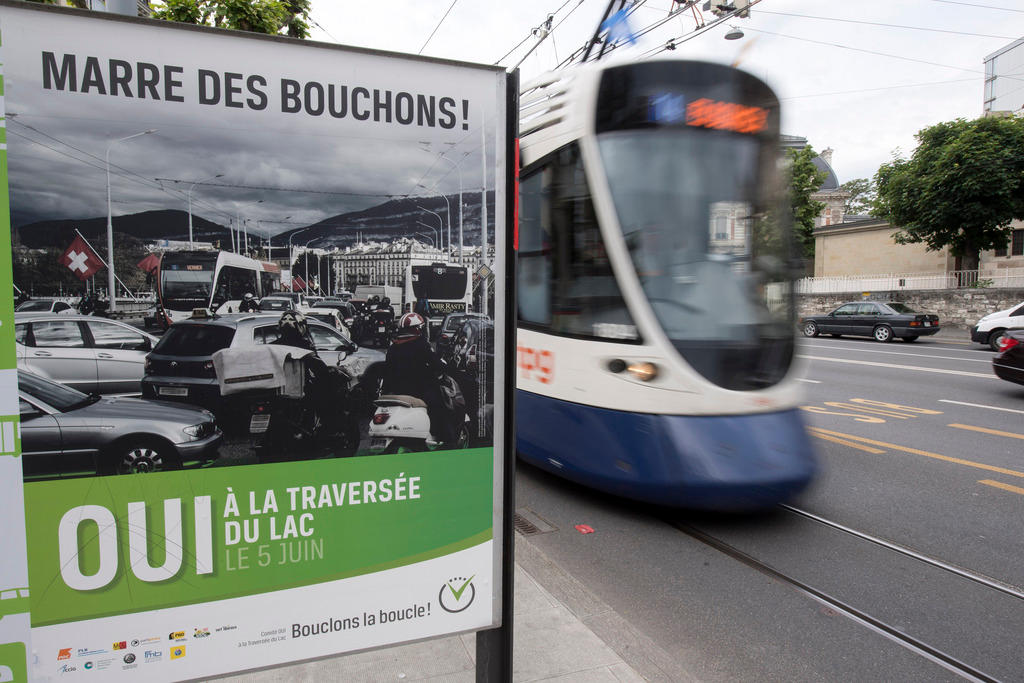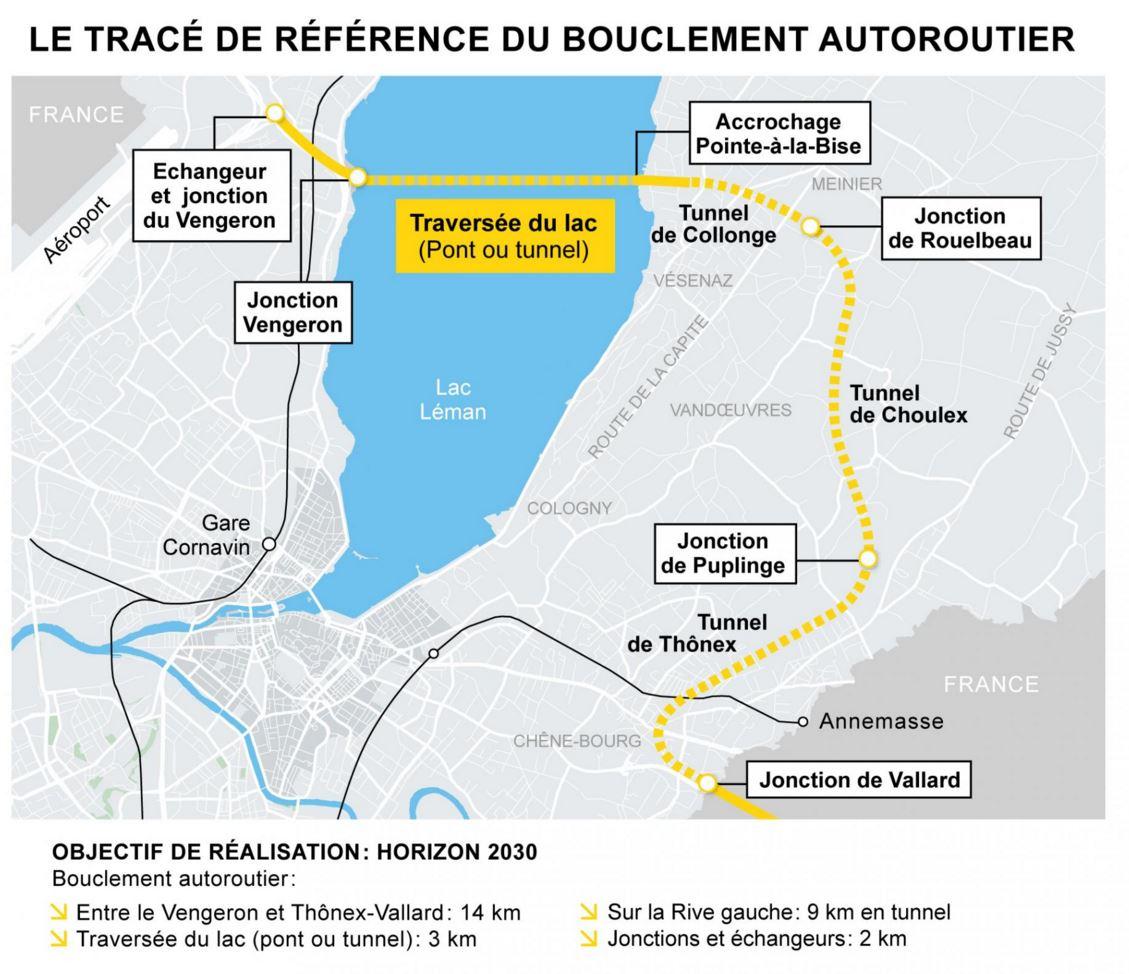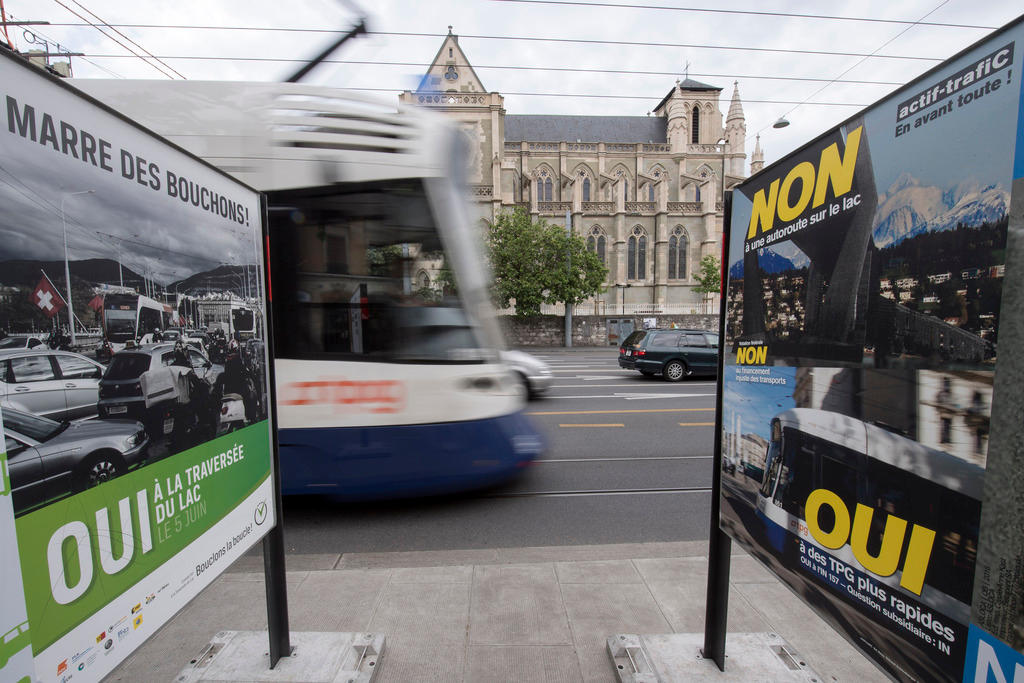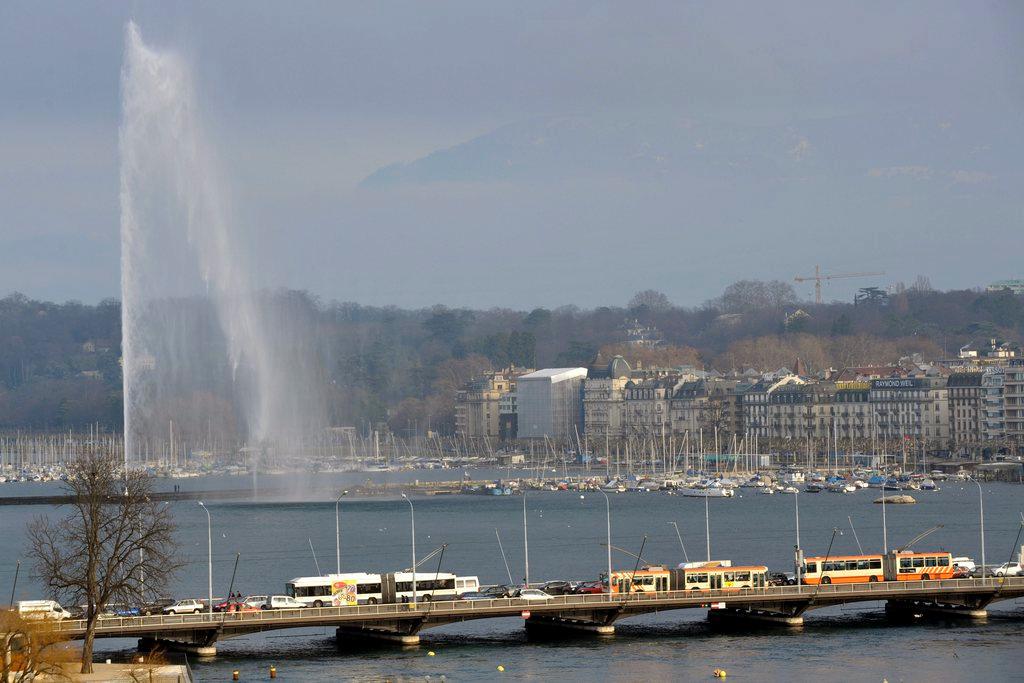Geneva citizens want lake crossing to ease congestion

Voters in canton Geneva have backed a plan to build a lake crossing – either a road tunnel or bridge – to help solve chronic transport problems in the region.
In Sunday’s cantonal vote, 63% of voters agreed to an initiative, which calls for the principle of a lake crossing – tunnel or bridge – being inscribed into the Geneva Constitution. This would complete a ring road around Geneva.
The initiative was backed by right and centre-right parties, as well as the Touring Club of Switzerland (TCS) motoring association and local entrepreneurs. They argued that Geneva suffers from mobility problems which are accentuated by the small territory, a growing population and sprawling development, especially in the suburbs.
While no specific project details or budget were presented during the initiative campaign, an earlier plan outlined by centre-right Radical and Christian Democrat parties in 2014 may form the basis for the future crossing.
They proposed digging a four-kilometre tunnel at a wide part of the lake, which would link up to the cantonal ring road and Swiss-French motorway network by 2030. It could be used by an estimated 70,000-100,000 vehicles a day.
The supporters had estimated that a tunnel and ring road would cut traffic in the city centre and on the regularly snarled up Mont Blanc Bridge – the main lake crossing point – by around 50% and help reduce journey times across the canton by 35%. Traffic noise and air quality would also be improved.
The idea of a ring road and a lake crossing – tunnel or bridge – had already been accepted by the cantonal government. They feature in its “Mobility 2030” strategy, approved in 2013.

With support from the majority of local citizens for a lake crossing, attention now turns to what will be put on paper and efforts to secure the funding, including a financial contribution from Bern.
It is estimated that CHF3-4 billion ($3-4 billion) will be needed to build a tunnel or bridge, ring road and motorway junctions to the A1 and A40 highways. The idea has the tacit approval of the Federal Roads Office, which says a lake crossing would offer favourable cost benefits.
Switzerland’s second biggest city is at a busy crossroads with France and the Alps. An estimated 900,000 people live in the city and surrounding region. Every day some 109,000 people commute to work from across the French border and from neighbouring canton Vaud.
With its high salaries and standard of living, Geneva continues to attract a constant flow of people to live and work. By 2040, the population is forecast to grow by 300,000.
The question of whether to build a bridge or tunnel in Geneva to help people cross from one side of the lake to the other and ease congestion has been debated for years.
In 1896, painter and architect Albert Trachsel presented a project for a tunnel at the far western end of the lake at the so-called La Rade in Geneva to preserve the lakeside view. In 1943, architect Emile-Albert Favre published a study on the need for a raised bridge. Then in 1945 he revised his plans in favour of demolishing the Mont Blanc Bridge and replacing it with two tunnels.
In June 1988, 68% of local voters agreed in principle to a new lake crossing. However, in June 1996 two-thirds of voters rejected plans to build either a tunnel or a bridge across the lake.
In September 2014, 63% of voters turned down an initiative to construct a 1.5-kilometre-long road tunnel under the lake close to the famous Jet d’Eau fountain.
Do you live or work in the Geneva region? Tell us what you think in the comment section below.

In compliance with the JTI standards
More: SWI swissinfo.ch certified by the Journalism Trust Initiative




You can find an overview of ongoing debates with our journalists here. Please join us!
If you want to start a conversation about a topic raised in this article or want to report factual errors, email us at english@swissinfo.ch.